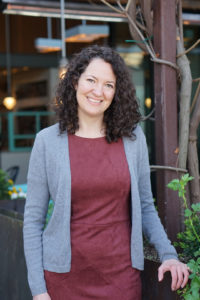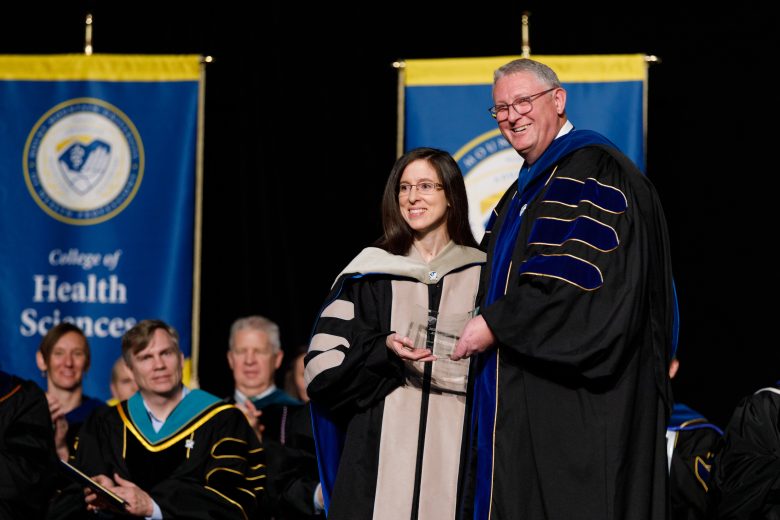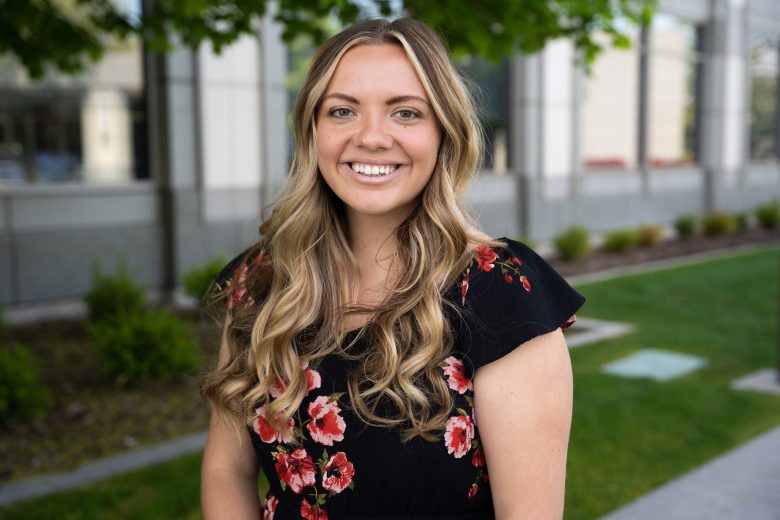 Maggie Hayes, OTR/L, a student in the Doctor of Occupational Therapy (OTD) program at Rocky Mountain University of Health Professions (RMUoHP) worked in a variety of pediatric healthcare settings before switching to the life and career of a traveling occupational therapist (OT). With four years traveling for work, Hayes shares her experiences and what she’s learned along the way about occupational therapy, healthcare, and life.
Maggie Hayes, OTR/L, a student in the Doctor of Occupational Therapy (OTD) program at Rocky Mountain University of Health Professions (RMUoHP) worked in a variety of pediatric healthcare settings before switching to the life and career of a traveling occupational therapist (OT). With four years traveling for work, Hayes shares her experiences and what she’s learned along the way about occupational therapy, healthcare, and life.
Hayes’ pathway to becoming an OT began with her earning a Montessori Education certification. This certification laid the foundation for her interest in childhood development and pedagogy. “Following certification and two years of Montessori classroom education, I completed a two-year degree in an occupational therapy assistant program,” said Hayes. “After graduation, I enrolled in a master’s in Occupational Therapy (MOT) bridge program. During the bridge program, I worked in an outpatient pediatric clinic. Once I completed the MOT program, I continued to practice in a variety of pediatric settings.”
After working for a few years, Hayes began looking into pursuing her doctorate. “My professional goals are participating in research, international practice opportunities, and eventually teaching in higher education,” said Hayes.
To achieve her goals, Hayes started researching various post-professional doctoral programs. After reading positive reviews about RMUoHP and attending informational sessions, Hayes “felt like the university aligned with my professional goals, provided a supportive environment, and employed experienced and dedicated professors. RMUoHP was also my first choice because of the on-campus learning opportunities.”
Since enrolling in the OTD program, Hayes has developed more confidence in and understanding of her profession. “The RMUoHP program has positively influenced my practice, provided opportunities to participate in research, and provided a strong foundation for student-centered teaching methods,” said Hayes.
For example, “Throughout the program our cohort engaged in learning opportunities that facilitated reflective practice, professional advocacy, and evidence based practice. Students utilize tools to appraise articles and communicate evidence with clients, family members, and other professionals,” said Hayes. “The elective Research Practicum exposed me to a completely different practice area of occupational therapy. It provided a hands-on and guided experience through the research process.”
Hayes hopes to combine the knowledge she has gained from RMUoHP with her real-world experiences so that she can provide the best care to her patients. “Obtaining my OTD gives me the skills needed to participate in research, teach in higher education, and be a leader in my field. Most importantly, the client-centered focus of helping the whole person is reignited in my practice,” said Hayes.
Her education is already enhancing her work as a traveling OT as she works with a variety of clientele and other therapists. “I have had the opportunity to work on different teams, including a special population evaluation team and a Child Find evaluation team,” said Hayes. “I have developed skills such as flexibility and adaptability. I have had extensive exposure to different evaluation tools. And as a bonus, I get to travel across the US.”
The career of a traveling OT isn’t without its challenges, but Hayes has learned from the opportunity. “It is essential to be flexible, know how to practice good self-care, and form relationships quickly,” said Simmons.
“Travel therapists move often and as OTs, we understand how meaningful relationships are to our wellbeing.” Hayes explained that the experiences one has as a traveling OT provides insight into the importance of healthy routines, which can be taught to clients.
Being a traveling OT also provides Hayes with exposure to the world. “The benefits of traveling are exposure to a variety of clinicians, clients, and settings,” said Hayes. “Spending time in each geographic area is also very rewarding! I’ve been to 23 national parks since beginning my traveling career. I’ve climbed mountains, floated rivers, and gone on countless hikes. I’ve driven from Texas to Alaska and explored Canada along the way. I’ve met outstanding clinicians and lifelong friends.”
For future OTs and those considering the OT profession, Hayes recommends spending time with OTs in the field. “Occupational therapists have the drive to help others, and we love to have others observe and see what we do.” For Hayes, being an OT is about helping those in need of specific healthcare assistance, but it’s also about educating others on the role of an OT. She invites OTs “to help educate the world on the value of occupational therapy as a holistic and client-centered practice.”
— Jennifer Fletcher, RMUoHP Content Writer & Editor



